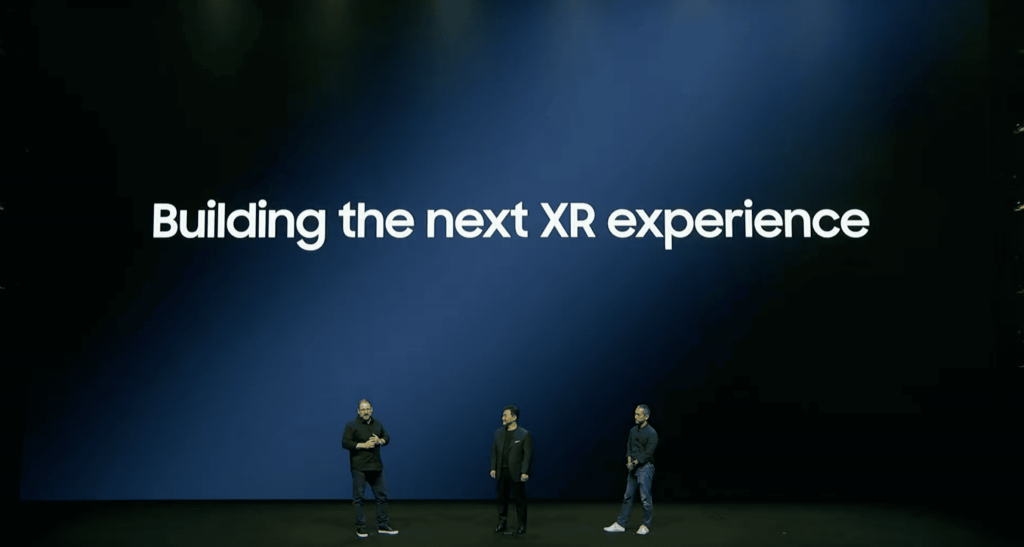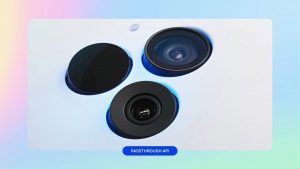Samsung To Develop New XR Hardware In Partnership With Qualcomm, Google


During today’s Samsung Unpacked event, Samsung announced plans to create new ‘Extended Reality’ (XR) hardware in partnership with Google and Qualcomm.
This new XR platform was far from the main focus of the event, which centered around the new Samsung Galaxy S23 Ultra phone and other hardware announcements. The company’s revived interest in the VR/AR market was only briefly mentioned on stage during the keynote, with more details given in interviews preceding the event.
Midway through the keynote, Samsung President TM Roh brought Cristiano Amon, President and CEO of Qualcomm, and Hiroshi Lockheimer, SVP Platforms and Ecosystems at Google, on stage. Amon spoke about Qualcomm’s ongoing partnership with Samsung, while also indicating that the company is working with Samsung on new XR technology:
“We’re also collaborating to bring next generation experiences to other Galaxy products, including laptops, tablets, XR and more. And in XR, we’re working to create a new era of highly immersive digital experiences that blur the lines between our physical and digital worlds. With our Snapdragon XR technology, along with Samsung’s amazing products and Google’s experiences, we have the foundation to make this opportunities of reality [sic] and drive the future of the spatial internet.”
In an interview with the Washington Post preceding the event, Roh gave some minimal details about the ongoing partnership and Samsung’s XR plans:
“For the chipset, it is going to be a strategic collaboration with Qualcomm. The hardware will be us. And the software will be provided by Google.
For the ecosystem, we were trying to determine which platform to work with, and in the end, we decided that it was going to be Google.”
According to the Post, that last point on the ecosystem refers to a “new, previously unannounced version of the Android operating system meant specifically to power devices such as wearable displays.”
Roh “would not elaborate” on the first product of this XR platform would be, only hinting that it’s “getting there” and “not too far away.” Roh also revealed that this new XR push from Samsung would include service partnerships with Meta and Microsoft, but didn’t provide further details.
While Samsung is branding this XR announcement as a ‘new’ push into the market, it actually confirms the company’s rumored return to the VR/AR industry after some early contributions last decade. Most notably, Samsung partnered with Facebook in the 2010s to produce Gear VR, a series of smartphone-based VR headsets that were effectively the first widely-shipped VR products for consumers. Samsung also released the Odyssey, a PC VR Windows Mixed Reality headset, in 2017 and its successor, the Odyssey+, a year later in 2018.
In 2020, a design patent indicated Samsung might be working on a new bug-shaped Odyssey headset. In March 2022, reports suggested Samsung was working on its own AR headset, followed by reports last December indicating the company planned to send out an AR/VR headset to developers in 2023.
“We believe that the ecosystem has to be somewhat ready for the product to be launched and for the product to be successful as well,” Roh told the Washington Post, discussing why the company’s XR announcement focused on the Google-Qualcomm partnership, and not a product. “There have been many attempts by other companies so far, but not as successful as had been hoped because perhaps the ecosystem was not as ready as it should have been.”




